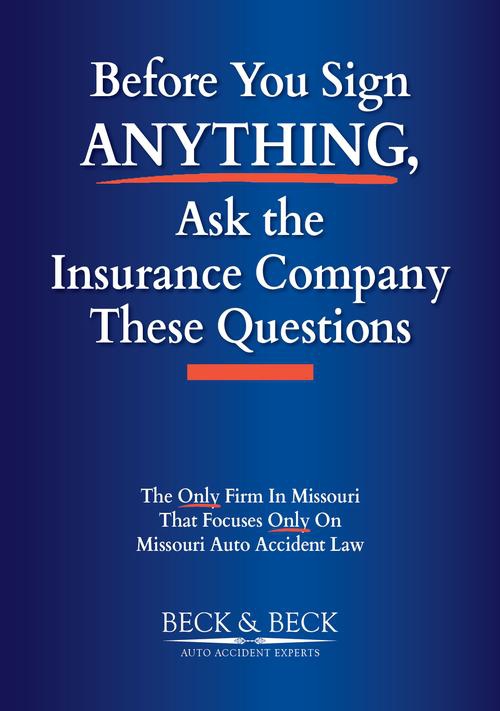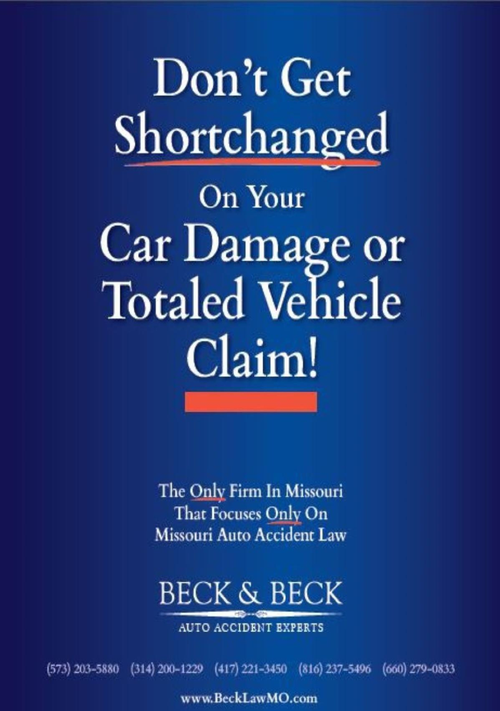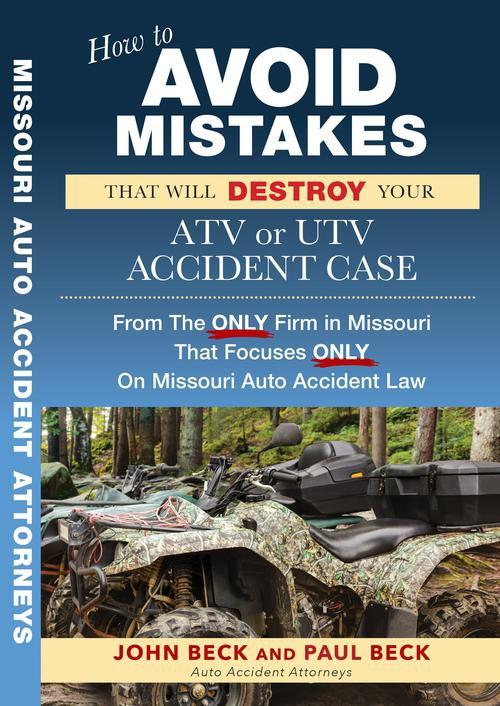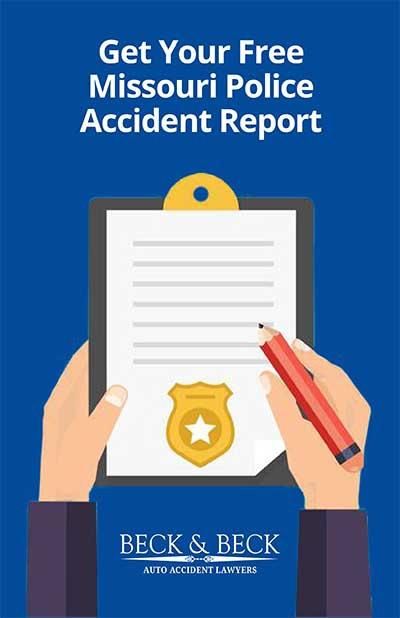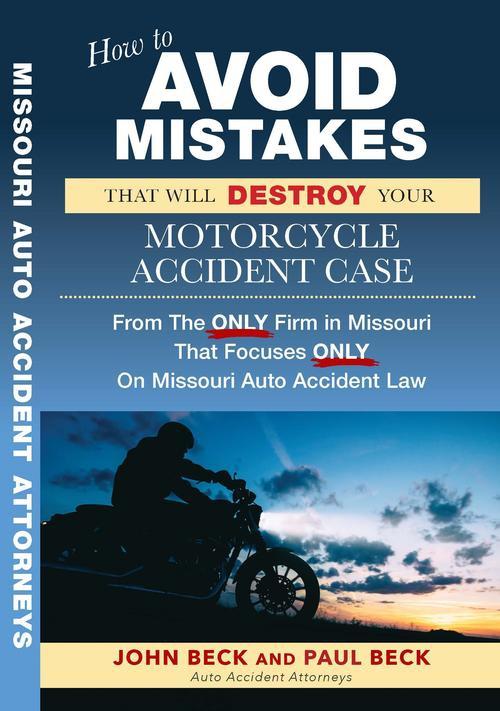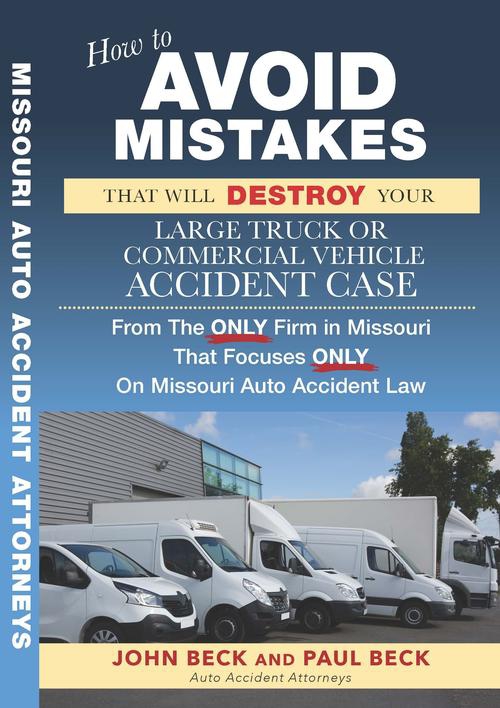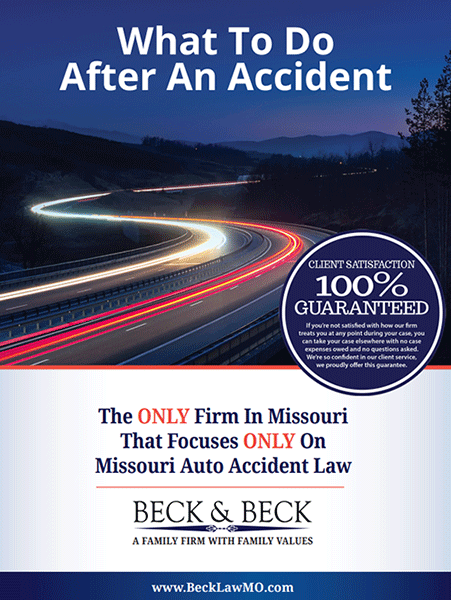Missouri’s sunshine laws give you the legal right to access government records related to your car accident, including police reports, witness statements, body camera footage, 911 call incident information, and other official documents that can strengthen your injury claim.
This public records law, found in RSMo Section 610.010, requires government agencies to provide most accident-related documents to the public, with special access rights for people directly involved in crashes.
After a car accident, these official records often contain critical evidence about what happened and who was at fault. Insurance companies may try to limit what information they share with you, but Missouri’s Sunshine Law ensures you can get these documents directly from the agencies that created them.
Crash Records You Can Get Under the Missouri Sunshine Law
Most car accident records in Missouri are public information. Under Section 610.100, any “incident report” with basic facts about your crash must be made available to you.
This includes the date, time, location, and circumstances of the accident. It also covers the names of adults involved and any traffic citations that were issued at the scene.
Open vs. Closed in Police Crash Records
Missouri law protects certain sensitive information while keeping most crash details public. Once a police investigation becomes inactive, nearly all of the report becomes available to you.
Open Records:
Open Records that you can access typically include the date, time, and location of the crash, the names of adult drivers and passengers, officer observations and findings regarding driver impairment or drunk driving indicators, traffic violations and citations that were issued, and the basic facts about what happened.
Closed Records:
Closed Records that remain protected usually consist of the names of anyone under 18, details that could harm an active investigation, personal information like Social Security numbers, medical details beyond basic injury descriptions, and any information that could endanger a victim’s safety.
Who Gets Special Access Under 610.100.4
Missouri law gives extra rights to people directly affected by a car accident. Even if parts of a record are usually closed, you can still get them if you fall into specific categories.
You have special access rights if you were involved in the accident, your property was damaged, or you’re investigating a potential lawsuit. Insurance companies and attorneys representing crash victims also get this expanded access.
This means you don’t have to wait for an investigation to close completely. You or your Missouri auto accident attorney can get the information you need to start building your case right away, even when some details are still being investigated.
Can You Get Body Cam, Dash Cam, 911 Incident Info, and CAD Logs?
Different types of digital evidence have different rules under Missouri’s Sunshine Law. You can request most of these records, but some have specific limitations you need to understand.
Body and dash cam footage is usually available unless the content would reveal police investigation methods or tactics. For 911 call information, you are generally entitled to the incident details recorded by the dispatcher, but not the actual audio recording itself.
CAD logs, which are the computer-aided dispatch records, are typically considered open to the public.
Traffic camera video is also available, but the key with any video evidence is timing: many agencies automatically delete body and dash cam footage after 30 to 90 days, and some traffic cameras overwrite their recordings in just 72 hours, meaning you must act very quickly to secure this evidence.
How To Request Missouri Crash Records
You don’t need any special forms or legal language to make a Sunshine Law request. A simple letter or email will work as long as you include the correct information.
Your request should clearly identify what records you want and how you wish to receive them. Be as specific as possible about the date, time, and location of your accident.
Here’s what to include in your request:
- Your full name and contact information
- The exact date, time, and location of the car accident
- A specific description of the records you need
- How you want to receive the records (email, mail, or pickup)
- A statement that you were involved in the accident, if that applies
The agency has three business days to respond to your request. They don’t have to provide the records that quickly, but they must at least acknowledge your request and inform you of any delays.
What Fees, Timelines, and Redactions Apply to Your Request?
Missouri agencies can charge you for providing records, but these fees are strictly limited by law. They can’t use high fees as a way to discourage you from getting public information.
The maximum fees you might pay include:
Paper copies:
No more than 10 cents per page
Research time:
The hourly rate of the lowest-paid employee who can find your records
Electronic files:
Only the actual cost of providing digital copies
You have the right to ask for a cost estimate before the agency starts working on your request. This prevents surprise bills and helps you decide if you want to proceed.
When you get your records, some information might be blacked out or “redacted.” This is normal and protects private details like Social Security numbers or medical information that isn’t relevant to your case.
What If Your Sunshine Request Is Delayed or Denied?
If an agency denies your request, it must give you a written explanation. They have to cite the specific law that allows them to keep the records closed.
You’re not stuck if you get denied. You can appeal to the Missouri Attorney General’s office or file a lawsuit to force the agency to release the records.
Many times, agencies deny requests incorrectly because they don’t fully understand the Sunshine Law. Having an experienced personal injury lawyer contact them often resolves these problems quickly without needing to file an appeal.
The Importance of Preserving Video and Digital Evidence Quickly
Time is your enemy when it comes to digital evidence. Police departments routinely delete body and dash cam footage after 30 to 90 days, and traffic camera recordings often disappear even faster, with some systems overwriting their data in just 72 hours.
Failure to act quickly almost guarantees that this critical evidence will be lost forever.
Immediate Evidence Preservation
We act immediately to protect this crucial evidence by sending legal preservation notices to every agency or entity that might have relevant footage. This notice legally requires them to save the recordings until your case is resolved.
Our preservation efforts are strategically targeted at entities that commonly hold this evidence:
Police Departments and State Agencies
We contact the local police departments that responded to your crash, as well as the Missouri State Highway Patrol, if they were involved, for their dash and body camera footage. We also contact the Missouri Department of Transportation for any relevant traffic camera video.
Businesses and Dispatch Centers
We target nearby businesses that might have security cameras pointed toward the crash site and 911 dispatch centers that hold computer-aided dispatch (CAD) logs and initial incident information.
You can significantly help preserve evidence by immediately taking photos of any cameras you see near the crash scene. Write down the names of nearby businesses and ask any witnesses if they recorded anything on their phones.
How Sunshine Records Strengthen Your Motor Vehicle Accident Claim
The records you get through Sunshine Law requests aren’t just paperwork. There’s robust evidence that can make or break your accident claim.
A police report establishes the basic facts of your crash and documents any traffic violations. Witness statements recorded at the scene are much more credible than memories recalled months later during a lawsuit.
Video evidence is the most substantial proof you can have. It shows precisely what happened and prevents the other driver from lying about the crash later.
These records are vital because of Missouri’s comparative fault system. If you’re found partially responsible for the accident, your compensation gets reduced by your percentage of fault.
Strong evidence protects your compensation:
Official records help minimize any fault assigned to you
Insurance companies can’t hide the truth:
They must deal with facts documented by neutral government agencies.
Your case becomes harder to dispute:
Clear evidence from official sources carries more weight than conflicting witness accounts.
Critical Deadlines and Retention Policies
Several important deadlines can affect your ability to get evidence and recover compensation after a car accident. Missing any of these deadlines can seriously hurt your case.
The most critical time limits include:
Sunshine Law response:
Agencies have three business days to respond to your request
Video retention:
Most footage is deleted within 30 to 90 days
Accident report filing:
You have 30 days to file your own report if the police don’t respond
Personal injury lawsuit:
Missouri gives you five years from the accident date to file a claim. Although you have time to file a lawsuit, acting sooner rather than later can help protect necessary evidence and strengthen your case.
The sooner you request records, the stronger your case will be. Fresh evidence is always more convincing than information gathered months after an accident.
Missouri Auto Accident Attorneys With 35+ Years of Experience
At Beck & Beck Missouri Car Accident Lawyers, we handle Sunshine Law requests as part of every case we take. Our experience with Missouri agencies means we get faster, more complete responses than most people can get on their own.
Our team is dedicated to helping injured Missourians stand up to insurance companies that may try to minimize or deny valid claims. We fight for our clients using every available tool, including Missouri’s Sunshine Law, to help them recover the compensation they deserve.
Contact us today for a free consultation. You won’t have to pay any attorney fees unless we get you money. You can start preserving the evidence in your case right now by contacting us online.
Missouri Sunshine Law FAQs for Crash Claims
Can I Get 911 Audio Recordings Through a Sunshine Law Request?
No, you cannot get the actual audio recording of a 911 call under Missouri’s Sunshine Law. You can only access the “incident information,” which includes the date, time, location, and basic description of what was reported.
Do People Involved in Accidents Get Access to Normally Closed Records?
Yes, Missouri law gives special access rights to anyone involved in a car accident under You can obtain records typically closed to the public if you need them to investigate a potential civil claim for damages.
What Should I Do If Police Claim My Records Are Part of an Ongoing Investigation?
Agencies can temporarily withhold records if releasing them would genuinely harm an active investigation. However, they must explain specifically how disclosure would cause harm and cannot use “ongoing investigation” as a blanket excuse to deny all access.
How Long Do Missouri Agencies Keep Dash Cam and Body Camera Footage?
Retention policies for body and dash cam footage differ by agency, and footage may be automatically deleted after a specific period of time. Traffic camera footage is typically retained for a short period. It may be deleted or overwritten quickly, so it is essential to act promptly when requesting this type of evidence.
Can Someone Facing Criminal Charges Use the Sunshine Law Instead of Criminal Discovery?
No, criminal defendants cannot use Sunshine Law requests to get records about their own cases. They must use the formal criminal discovery process instead, as established by Missouri Attorney General Opinion 200-94.
What Is the Maximum an Agency Can Charge for Sunshine Law Records?
Agencies can charge up to 10 cents per page for paper copies, the actual hourly rate of their lowest-paid capable employee for research time, and actual costs for electronic media.
You always have the right to request an itemized cost estimate before agreeing to pay any fees.
Related Articles
How a St. Louis car accident attorney can assist with your claim
Vehicle total loss laws in Missouri
Can you access a driver’s phone records to prove distracted driving in Missouri?

